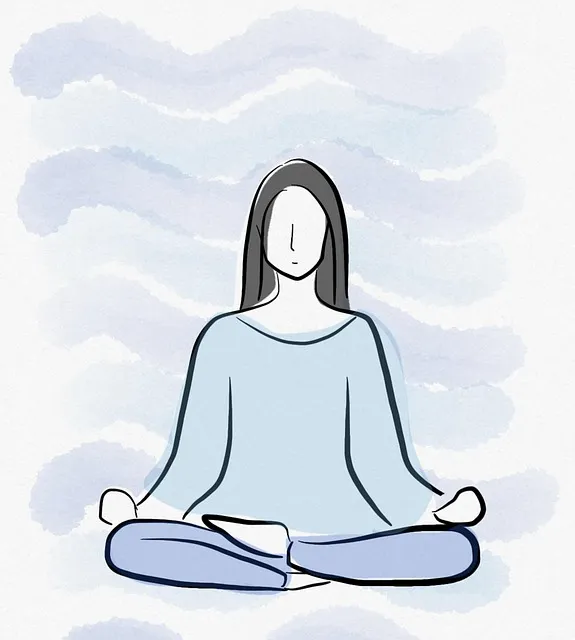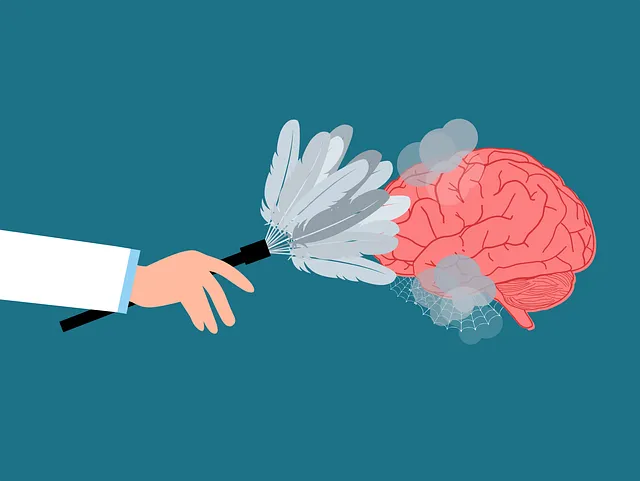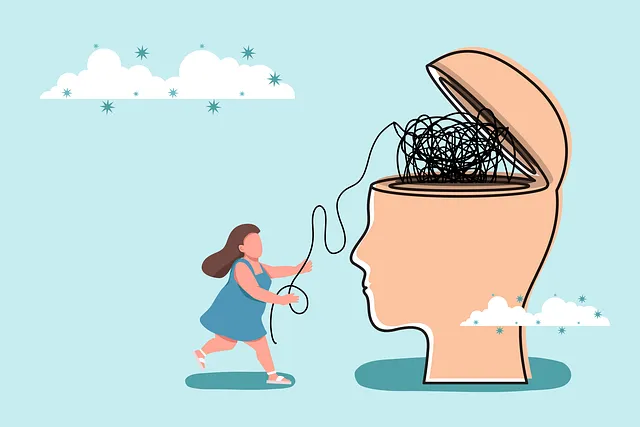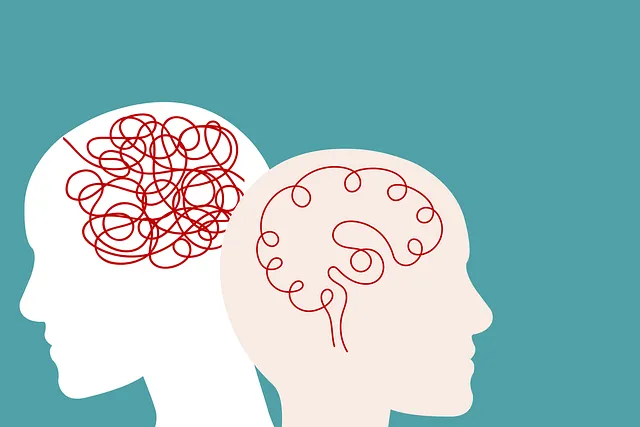Mindfulness meditation, gaining popularity for its stress reduction and emotional well-being benefits, is offered by Kaiser Healthcare at their Lone Tree facility through inpatient mental health services. These programs teach breathing techniques, body scans, and guided meditations to enhance self-awareness, reduce anxiety, and improve mood. Creating a home meditation space with nature views, like a lone tree, can support consistent practice. Inpatient programs target healthcare providers' burnout, using techniques like breath awareness and body scans. Integrating mindfulness into daily life helps manage stress through simple practices like mindful breathing and sensory check-ins. Kaiser provides resources, workshops, and journaling exercises to guide individuals in cultivating a more mindful existence.
Discover the transformative power of mindfulness meditation with our comprehensive guide. Explore the foundational principles of this ancient practice and its profound impact on mental well-being, as evidence suggests even Kaiser’s inpatient mental health programs incorporate techniques like breath awareness. Learn how regular meditation can unlock inner peace, enhance clarity, and cultivate a sense of presence in daily life. From setting up your serene home space to mastering advanced techniques, we provide practical steps for anyone looking to embrace mindfulness on their journey towards holistic mental health, much like Lone Tree does with Kaiser’s care.
- Understanding Mindfulness Meditation: A Foundation for Mental Well-being
- The Benefits of Regular Practice: Unlocking Inner Peace and Clarity
- Setting Up Your Meditation Space: Creating a Tranquil Haven at Home
- Techniques to Master: Breath Awareness, Body Scans, and Guided Visualizations
- Integrating Mindfulness into Daily Life: Cultivating Presence Beyond the Cushion
Understanding Mindfulness Meditation: A Foundation for Mental Well-being

Mindfulness meditation is a practice that encourages individuals to focus on the present moment, observing their thoughts and sensations without judgment. It’s about cultivating awareness and acceptance, allowing one to navigate life’s challenges with greater clarity and composure. By fostering mindfulness, individuals can develop essential skills for mental well-being, such as improved focus, enhanced emotional regulation, and increased self-awareness.
This ancient practice has gained prominence in modern times, with many seeking its benefits for stress reduction, anxiety management, and overall mood improvement. At Kaiser, the healthcare provider offers resources like mindfulness meditation programs to support mental health initiatives, even providing options for those who may require more intensive care, including inpatient mental health services at their Lone Tree facility. These programs often include guidance on breathing techniques, body scans, and guided meditations to help individuals develop a consistent practice that can lead to significant improvements in emotional well-being, including better stress management, enhanced empathy building strategies, and confidence boosting abilities.
The Benefits of Regular Practice: Unlocking Inner Peace and Clarity

Regular mindfulness meditation practice offers a powerful path to inner peace and clarity, accessible to everyone, even those seeking support through programs like Kaiser’s inpatient mental health services or community outreach program implementations. By cultivating present-moment awareness, individuals can reduce stress, anxiety, and depression symptoms often associated with mental illness stigma reduction efforts. This ancient technique encourages non-judgmental observation of thoughts and emotions, fostering a deeper understanding of oneself and one’s reactions to life’s challenges.
As mindfulness meditation becomes more integrated into modern life, research highlights its potential to enhance overall well-being. Regular practitioners report improved focus, better emotional regulation, and increased resilience in navigating life’s ups and downs. These benefits extend beyond the mind, positively impacting physical health as well, with studies suggesting reduced blood pressure, improved immune function, and enhanced sleep quality.
Setting Up Your Meditation Space: Creating a Tranquil Haven at Home

Creating a dedicated meditation space at home can significantly enhance your mindfulness practice. Start by finding a quiet corner or room where you can retreat to for uninterrupted time. A view of nature, like that of a lone tree in your backyard, can foster a sense of tranquility and connection to something greater. This natural setting can serve as a powerful reminder of calmness during your sessions.
Designing your space involves ensuring comfort and minimal distractions. Consider adding soft lighting, comfortable seating or cushions, and perhaps some soothing decor like plants or candles. The ambiance should reflect your personal preferences while encouraging a sense of peace. Remember, the goal is to create a sanctuary where you can focus on your breath and let go of daily stresses—a space that supports both self-care routine development for better mental health and mental health education programs design, ultimately enhancing your overall well-being, especially in light of options like Kaiser’s inpatient mental health services.
Techniques to Master: Breath Awareness, Body Scans, and Guided Visualizations

Incorporating mindfulness meditation into your routine can be a powerful tool for stress reduction and mental well-being, especially for healthcare providers navigating demanding careers. Lone Tree does Kaiser have inpatient mental health services? Absolutely. And within their offerings, techniques like breath awareness, body scans, and guided visualizations stand out as effective practices.
Breath awareness involves focusing on the natural rhythm of your breathing to anchor yourself in the present moment. This simple yet profound technique can help calm racing thoughts and reduce anxiety. Body scans, on the other hand, encourage a methodical attention to different parts of your body, fostering a deeper sense of connection with physical sensations. For healthcare providers dealing with high-stress situations, this practice can be a valuable burnout prevention strategy. Guided visualizations transport you to calming imagery, promoting relaxation and positive thinking—a key component in crisis intervention guidance.
Integrating Mindfulness into Daily Life: Cultivating Presence Beyond the Cushion

Integrating mindfulness into daily life goes beyond the act of setting aside time for meditation. It’s about cultivating a sense of presence and awareness in every aspect of your day-to-day existence, much like observing the lone tree standing steadfast against the wind. This practice can significantly enhance mental wellness, offering tools to manage stress through simple yet powerful techniques. For instance, mindful breathing exercises or body scans can be incorporated into morning routines, setting a calm tone for the day ahead. Even a brief pause to check-in with your senses during a walk in nature can serve as a grounding moment, helping to reduce anxiety and boost confidence.
The practice extends further than just personal reflection; it encourages individuals to engage fully with their surroundings. This might include paying attention to meals, savoring each bite, or engaging in routine tasks mindfully, such as washing dishes or walking the dog. These seemingly ordinary activities become opportunities for self-care and mental exercise when approached mindfully. Organizations like Kaiser’s inpatient mental health services can provide guidance on incorporating these practices into one’s life, offering resources for stress management workshops, confidence-boosting initiatives, and even mental wellness journaling exercises to help individuals track their progress and cultivate a more mindful existence beyond the meditation cushion.
Mindfulness meditation, as explored in this guide, offers a powerful tool for enhancing mental well-being. By understanding its foundational principles, reaping benefits through regular practice, and integrating techniques like breath awareness into daily life, individuals can cultivate presence and inner peace. Whether seeking to unlock clarity or simply find moments of tranquility amidst the hustle and bustle, mindfulness is accessible to all. So, take a dive into this ancient practice and let it guide you towards a more balanced and fulfilling life, potentially even revolutionizing your mental health journey, much like a lone tree standing strong against the elements.






